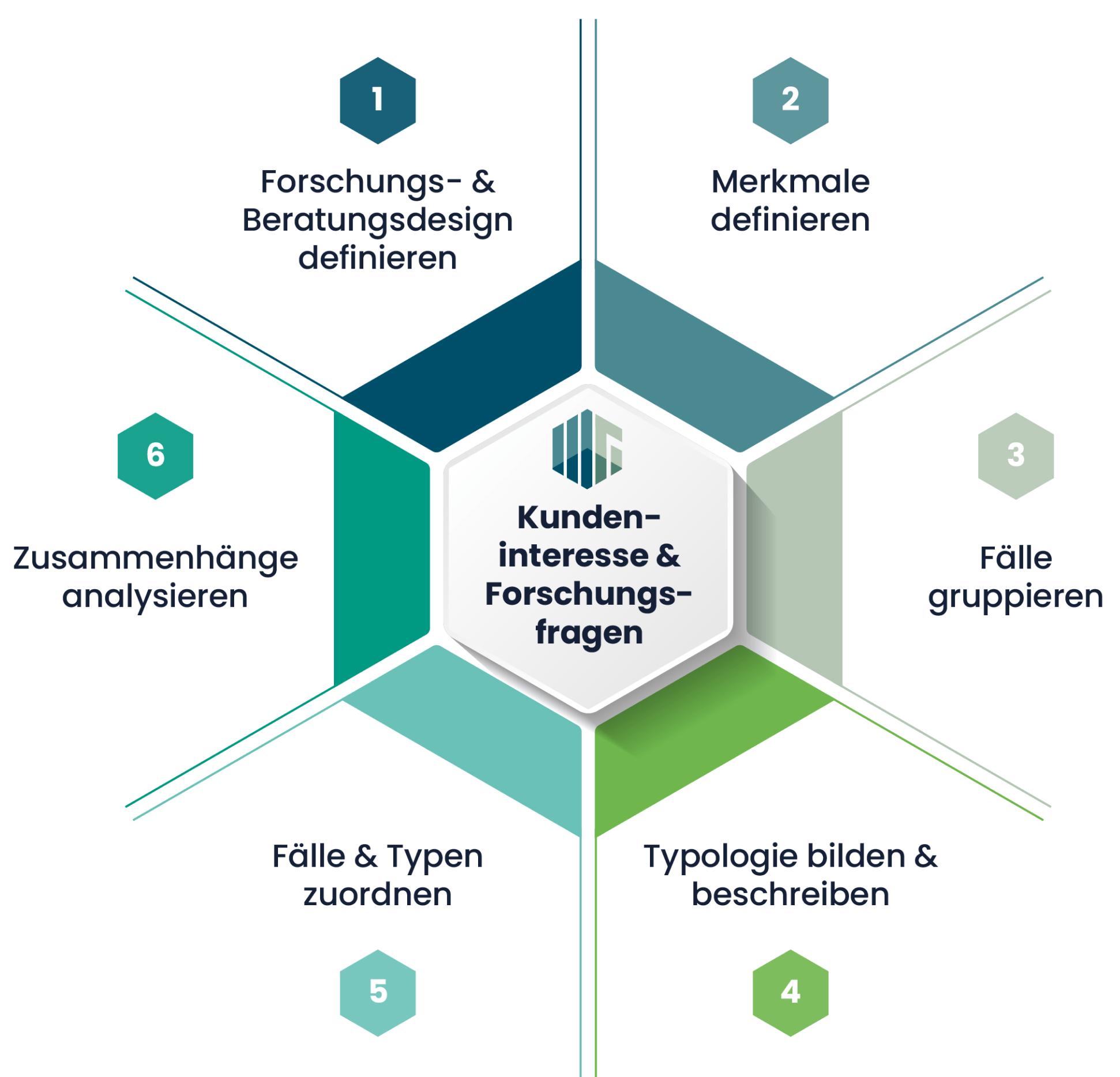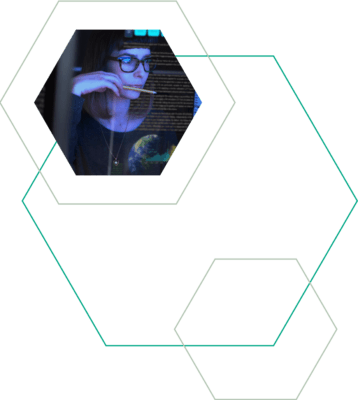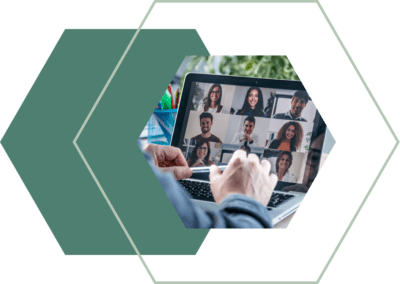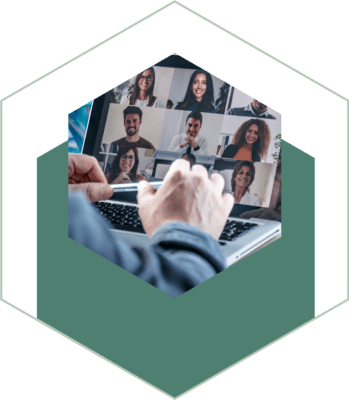Research
How we research
Based on specific questions and problems that arise
we deliver using qualitative research methods
tailor-made solutions.
Fast access
Applied social research
Empirical case studies
Today’s business and working world is characterized by complex relationships that are interdependent. Our goal is to illuminate and penetrate these relationships using comprehensible models and methods for your specific cosmos, be it the company, the organization or an entire economic sector, in order to identify new relationships at an early stage.
Making complex social and economic realities and the interaction of a large number of actors visible and comprehensible enables political action with foresight.
With the following methods, which are individually tailored to your requirements, have been tried and tested and are based on economic and social science, we supplement already known approaches such as individual case analyzes, benchmarking and best practice. Precisely prepared and tailor-made.
- Empirical research analyzes of social change processes
- Empirical corporate and organizational ethnography
- Advisory support for change processes
- Analysis of diversity and equality issues
- Problem diagnosis and mediation in conflict situations
- Advice on organizational development
- Workshops and focus groups
- Accompanying evaluation of reform processes
- Expert opinions and analyzes in questions of social and insurance law
Our particular expertise lies in qualitative research

Qualitative research methods
Practice-relevant research
To give you an impression of how knowledge is gained on the basis of the research approach outlined, we briefly explain the relevant methods of qualitative research:
Participating observation
As external parties, we carefully and respectfully take part in the everyday work of your employees or go for a part of everyday life with the selected test subjects. The strength of the participant observation lies in the necessary distance with which we can clearly identify and trace internal company practices and behavioral patterns. It runs according to the following pattern, which we of course adapt to the specific circumstances:
- We observe up close, and yet through our external position, in a critical and distant manner, the social relationships and structures that express themselves in everyday operations (in your company or your organization) Even supposedly mundane little things can be very revealing, because nothing goes without saying.
- From this we develop hypotheses on the often little conscious and questioned internal routines and behavioral patterns, each of which can be quite significant and of far-reaching importance.
- In the third step, we verify whether and to what extent these hypotheses can be generalized and apply company-wide – through further targeted observations and in combination with additional methods.
Understanding interviews
Understanding interviews are a central component for understanding internal organizational processes and relationships. Here, more in-depth discussions are held with people who, from the point of view they have adopted – shaped by hierarchy, gender or generation – adopt certain positions and perspectives and thus – consciously or unconsciously – value attitudes (. The condensed statements we made from the interviews make transparent how perspectives, motivations and perceptions of employees shape the company and influence people around them – whether clients or business partners.
Focus group discussions
With focus group discussions, we enable an open exchange on current and pressing issues between systematically selected test subjects. Here, too, the specific views and attitudes expressed in the active exchange contribute to a comprehensible, multifaceted overall picture of your company or your organization. In our experience, such group discussions offer a broader information base and serve to supplement the results obtained from individual interviews.
Document analysis in companies / organizations
The large number of documents archived in organizations and companies – from the website of your company to job advertisements to anniversary publications – illustrate the development of your own and external representations and perceptions and the assessments that reflect them. In the document analysis, we scrutinize current and past written certificates (publications, coders of conduct, etc.) in order to understand this development over a longer period of time and to gain additional insight into the values and norms actually lived.
Standardized surveys
Online surveys focused on certain topics in certain social groups or in the workforce of a company provide important key data for change processes. The data obtained are subjected to a correspondence analysis and enriched and rounded off with the findings from the interviews and focus group discussions.
Typing and proposed solutions
Diagnosis and options for action
When dealing with economic requirements and social issues, there is a need to identify and classify different groups involved, which differ on the basis of biographical aspects, their motivations or their specific needs. This allows practical knowledge to be derived and appropriate concrete measures to be planned.
We use so-called “typing” to identify such groups.
The type formation takes place on the basis of similarities and differences with regard to the characteristics identified as relevant to the targeted organizational change processes. Such “ideal types” are – according to Max Weber – an abstraction obtained from the critical observation and analysis of empirical facts, by means of which the complex interrelationships of human behavior and organizational structures can be better understood.



Change Management
Recognize, understand and implement changes
We develop solutions for change processes that can be successfully implemented. We point out problem areas, weak points and improvement approaches. We support your change processes with workshops, measures, communication concepts and practical examples.

